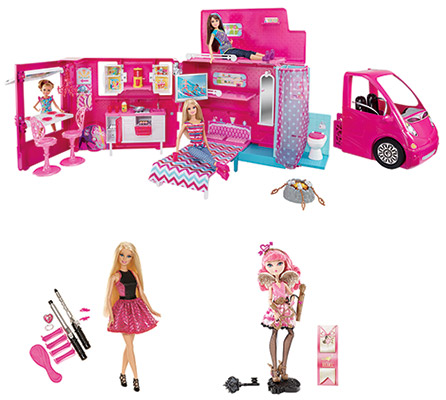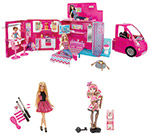Letter to Santa

BELIEVING IN SANTA - FUN AND HEALTHY FOR KIDS
- Literacy expert confirms the magic of Santa at Christmas is good for your child's health
- Research[1] reveals 91% Australian parents believe that the anticipation of Santa on Christmas Eve is one of the most magical memories for children
- http://www.yourlettertosanta.com.au/ helps keep the magic alive this Christmas
As Christmas approaches, families across the country prepare by following the traditions that accompany this festive period including writing a letter to Santa, putting up a tree, singing carols and waiting for Santa to climb down the chimney.
But new research from leading toy manufacturer, Mattel, in conjunction with the launch of its new website YourLettertoSanta.com.au, has shown that more families than ever before are completing these traditions thanks to 91% of parents surveyed believing that the Christmas is one of the most magical times in a child's life.
Literacy expert and Senior Lecturer at Macquarie University, Sydney, Dr. Victoria Flanagan, is encouraged by the findings as she believes this is not only a source of fun for children, but beneficial to their cognitive development. Her work with children demonstrates that imaginative play, as it is termed, including the reinforcement of Santa's story at Christmas, ultimately contributes towards children acquiring a wide range of social, linguistic and problem-solving skills.
Christmas rituals around Santa, such as writing letters and leaving carrots and cookies out, allow children to experiment with different ways of thinking and being – to try on new identities and new ways of looking at the world. Dr. Flanagan asserts that the simple act of imagining something beyond a child's everyday experiences provides them with the opportunity to think creatively about relationships between adults and children, express their emotions and find solutions to problems or dilemmas.
'Imaginative play is important for a child's developing mind and reinforcing Santa's story at Christmas ultimately contributes towards children acquiring a wide range of social, linguistic and problem-solving skills. Christmas rituals around Santa, such as writing letters and leaving carrots and cookies out, allow children to experiment with different ways of thinking and being – to try on new identities and new ways of looking at the world," comments Dr. Flanagan
With Christmas rituals the key to keeping the magic of Santa alive and encouraging children to engage in imaginative play, Mattel developed the Letter to Santa website to facilitate this and invite kids to go online and make direct contact with Santa, write him a letter and share their wish list. Writing a letter to Santa is one of the most popular Christmas rituals, with 65% of Australian parents encouraging their children to write a letter to Santa before the big day.
Mattel representative, Pedro Demartini said: 'At Mattel we are all about spreading the Christmas cheer and we work year round with Santa to make sure we get him all of the presents he needs in time for the festive season. YourLetter toSanta.com.au means kids can jump online and get their wish list in before the Christmas rush, as well as receive a special message from Santa himself!."
Other tips from Letter to Santa for keeping the magic alive for parents to try at home this silly season include:
- Letter to Santa. Get in early and get your kids to prepare their letter to Santa through www.yourlettertosanta.com.au
Set the mood. Put up the Christmas tree early, and play holiday music around the house. Choose bedtime stories that bring Christmas and the Santa story to life.
- Make a moment of it. Make a moment out of hanging up the stockings on Christmas Eve, and make sure your kids know that Santa will only visit once they're asleep! If you're committed to the magic, your kids are more likely to be too.
- Continue the magic on Christmas Day. If your children see Santa's footprints throughout the house on Christmas morning, or a thank you note for the cookies left out, their imaginations will run wild.
[1] The study was conducted by Galaxy Research in October 2014 among a nationally representative sample of 1,005 parents of children aged 4-12 years. The research was commissioned by Mattel
Have You Seen This?
MORE




